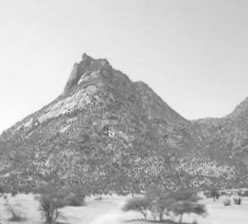
At the annual symposium Ambassador Andeberhan Wolde Giorgis organizes, he included criticism of the Government-in-Exile proposal. A link to the entire speech (in Tigrinya) is provided below. For those who did not follow it (or understand Tigrinya) here is a summary:
Thread.
Thread.

All errors in translation are ours and we will correct them if we mis-translated what he said. Fairly soon, in this same thread, we will reply to it as we think it will advance the discourse to enable our people full information so they can choose the best path for #Eritrea.
A. "The "Government-in-Exile" proposal is not new. It was floated 10 years ago by outsiders for purposes of regime change, and it amounted to nothing but failure, and that it failed is an asset not liability for Eritrea.
B. "Regarding the efficacy of an externally-driven change, we need only look at Somalia, Iraq, Syria, Libya, Afghanistan: they are enough examples.
C. "An Eritrean Ahmed Chalabi, like the externally imposed leader for Iraq, can only hurt not help our country and people.
D. "To present a multicultural, harmonious and communal society, as if it is represented by two schools of thought, two desires, two languages, is wrong, divisive and sectarian.
E. "This kind of sectarian politics has been practiced in Lebanon. The same Lebanon that has been mired in civil war—such a proposal cannot be helpful but harmful. It is most saddening and bankrupt idea that Lebanon would be used as a role model.
F. "Moreover, there are important questions that the Government-in-Exile proposal doesn’t answer.
1. Question of Rule of Law
2. Issue of Representation
3. Issue of Legitimacy
4. Issue of practicality on the ground
5. Issue of impact on struggle to establish a constitutional govt.
1. Question of Rule of Law
2. Issue of Representation
3. Issue of Legitimacy
4. Issue of practicality on the ground
5. Issue of impact on struggle to establish a constitutional govt.
G. "These are some of the questions that the [proposers of] Government-in-Exile do not answer. The Government-in-Exile:
H. "1. Will not be representative of the Diaspora and Eritreans in Eritrea
2. does not have legitimate or legal basis for its foundation
3. Cannot be executed practically.
2. does not have legitimate or legal basis for its foundation
3. Cannot be executed practically.
I. "Moreover, instead of being a supplement to the Eritrea-based struggle for self-rule, it sees itself as a replacement. It is an obstacle to bring about democracy in Eritrea: places like Libya are a good example [of what happens when you do that]"
J. End of Quote.
For the full video of the speech, refer to this link:
For the full video of the speech, refer to this link:
• • •
Missing some Tweet in this thread? You can try to
force a refresh






